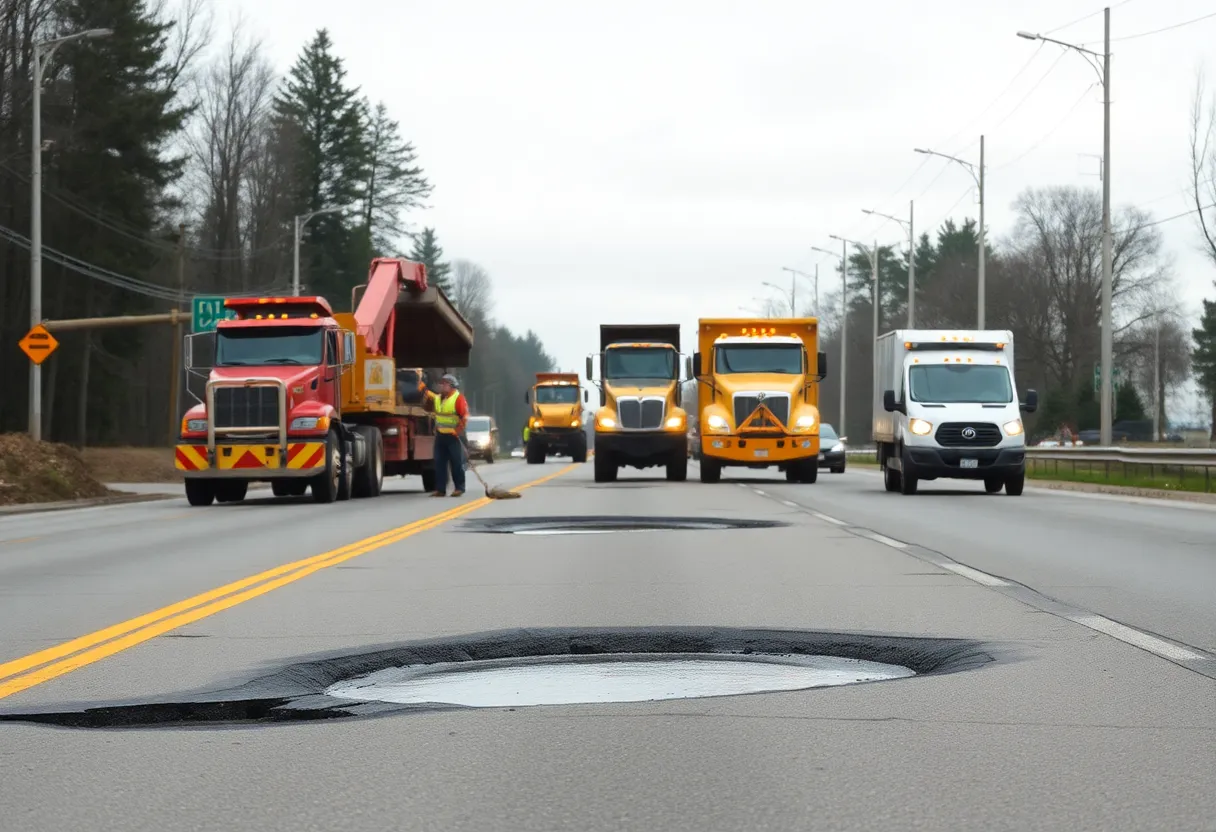

Michigan road repairs underway as part of the governor's proposed funding plan.
In an effort to repair Michigan’s deteriorating roads, the governor has proposed tax increases on marijuana and nicotine products. The plan, known as the Mi Road Ahead, aims to generate $3 billion for road improvements, including $1 billion for local roads and $250 million for public transit. While some view the proposal as necessary to address a tax loophole, industry advocates express concern over the potential burden on the cannabis market. Overall, the proposed tax changes spark widespread debate on balancing infrastructure funding and industry sustainability.
In a bold move to tackle the state of Michigan’s crumbling roads, the governor has unveiled a new plan that has tongues wagging throughout the state. Detroit, the heart of the Great Lakes State, is abuzz with discussions surrounding the proposed tax hikes on marijuana and nicotine products, all aimed at funding a massive $3 billion road repair initiative, dubbed the Mi Road Ahead plan.
This ambitious plan is not all about fixing potholes; it allocates a hefty $1 billion to local road improvements and another $250 million for public transit programs. It’s clear that the governor is hoping to not only restore Michigan’s highways but also to revitalize public transport options for residents.
A striking feature of this proposal is a new wholesale tax on marijuana, a measure that some are calling a necessary fix for a “loophole” in the existing legislation dating back to its legalization in 2018. Michigan’s cannabis market has flourished since legalization, with billions reported in sales just last year alone. This boom has prompted the governor’s office to anticipate an influx of about $470 million in revenue from the proposed tax changes.
At the moment, Michigan imposes a 10% excise tax on marijuana, plus a 6% sales tax. Many advocates for the cannabis industry think these rates are already adequate and worry that increasing the total tax rate to a staggering 32% might backfire. They draw parallels with states like California, where excessive taxation has pushed consumers back into the illegal market.
But it doesn’t stop there! The governor is also looking to impose a similar tax structure on vaping products and other non-tobacco nicotine items. This would align their tax rates with existing tobacco taxes, conceivably bringing further revenue into state coffers.
Industry advocates are raising alarms over these proposed tax hikes, arguing that the cannabis sector already faces steep taxes, and adding more could jeopardize their livelihoods. They fear that an increased tax burden could push many businesses to the brink, potentially leading to closures.
Interestingly, support for the tax increases isn’t universal. While the Michigan Department of Treasury endorses the plan—highlighting public health issues related to vaping—it appears that not all lawmakers share this vision. Many Republican legislators are expressing doubts, suggesting that there are alternatives to raising taxes that could still allow for necessary road funding.
If these tax proposals pass, Michigan’s cannabis taxes would skyrocket to the second highest in the country, right behind Washington state. This raises pressing questions about whether the increased tax structure is overly burdensome for the cannabis market, a sector that has distinct differences from the tobacco industry, which has its own health concerns and regulations.
This discussion between funding vital infrastructure and ensuring the sustainability of a rapidly growing marijuana market has opened up a significant dialogue across Michigan. As the governor seeks to close what she perceives as a loophole, both industry leaders and everyday residents will be waiting with bated breath to see how the proposed tax hikes will unfold in the legislature.
As the discussions heat up, Michiganders are left to ponder, will these taxes pave the way to better roads or create more bumps in the cannabis industry? The answer remains to be seen as the proposal awaits scrutiny and potential approval from the legislature.
News Summary The U.S. Department of Education has unexpectedly revoked nearly $42 million in COVID…
News Summary Novi City Council has approved a proposal for a $120 million bond aimed…
News Summary Prima Medicine has added Dr. Mandana Shafai to their team as a Concierge…
News Summary Idaho has become the eighth U.S. state to extend foster care benefits to…
News Summary The music industry is buzzing with job opportunities for digital marketing professionals. Prominent…
How Can You Use Social Listening to Inform Your Digital Marketing Strategy? Introduction In today's…